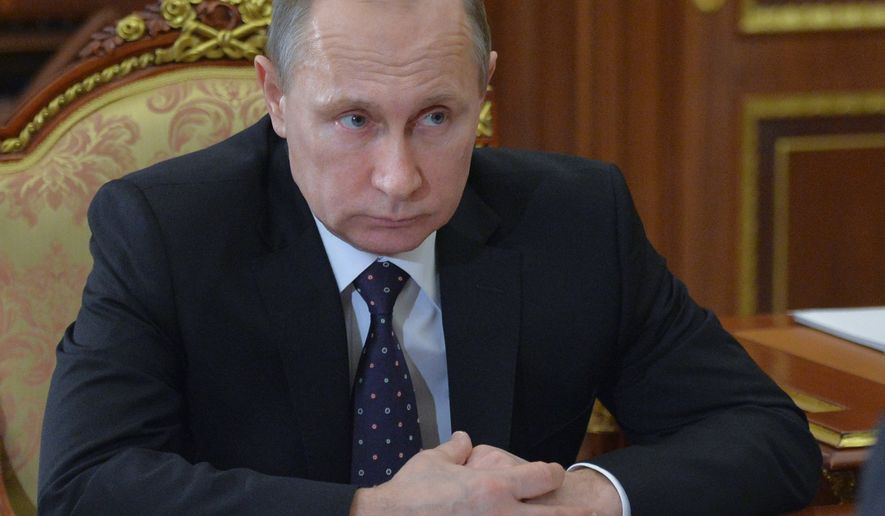Google, Apple and other U.S. tech companies could soon be cutting checks to the Kremlin if they want to continue operating within Russia: President Vladimir Putin has asked the government to amend legislation to enable “more equal working conditions” among Internet companies, and Russian media reports that it may involve a new tax on services offered out of Silicon Valley.
The Kremlin announced Friday that Mr. Putin has signed a series of executive orders as a result of a December forum, among them a request for six federal agencies to work with the president’s new Internet adviser, German Klimenko, on amending legislation to ensure equal operating conditions for companies within Russia with respect to the Internet, according to an English translation.
The coalition, which includes Mr. Klimenko, the Federal Anti-Monopoly Service, the Ministry of Economic Development, the Ministry of Finance, the Federal Tax Service, the Ministry of Industry and Trade and the Ministry of Communications, has until Sept. 1 to submit their proposal.
“Ensuring equal working conditions may involve, in particular, the introduction of value added tax (VAT) on the sale of services in Russia by foreign companies such as Google and Apple” Moscow’s Vedomosti newspaper reported Monday in an article detailing Mr. Putin’s support of a so-called “Google Tax.”
Mr. Putin’s directive comes two months after lawmakers in the lower house of Russia’s parliament proposed legislation that would add sales tax to products and services sold through the online stores of foreign companies. On its website, the Kremlin said the president’s decision was based on recommendations made by the Institute for the Development of the Internet, which Mr. Klimenko heads as board chairman.
Mr. Klimenko, who was personally appointed by the Russian president in December, was quoted in 2014 as saying that a ban on Google like the one that exists in China could become a reality in Russia within “two to three years.”
“Currently both Google and Facebook do not cooperate with our law enforcement agencies,” he told the Gazeta newspaper. “Needless to say, sooner or later the issue will come up and sooner or later they will have to comply with our laws or leave the territory of the Russian Federation.”
More recently, Mr. Klimenko said in December that tech companies have “responsibilities” when it comes to doing business in Russia, and acknowledged local businesses would start thriving immediately if American competition was eliminated.
“What will happen if the government bans Google and Facebook? The answer is stupidly simple — Yandex and the rest will begin to work more, once they receive a bigger slice of the pie,” Mr. Klimenko said, referring to the Russian-based search engine that competes against the Mountain View, California, company.
“From a purely financial point of view, if Google stops functioning in Russia, Yandex will start earning more,” he said.
A law introduced in August legally requires Internet companies that handles the data of Russian citizens to store that information on local servers, and Russia’s Federal Anti-Monopoly Service ruled the following month that Google had violated a “protection of competition” provision by prioritizing its own services over those offered by Yandex.
The U.S. company has since been ordered to change the way apps come preinstalled on Android smart phones, or risk paying upwards of 15 percent of its local revenue to Russian authorities.
Other executives orders signed by Mr. Putin include a similar directive that would ensure Russian hardware and software companies are prioritized during procurement, and another on the monitoring of Internet threats.
• Andrew Blake can be reached at ablake@washingtontimes.com.




Please read our comment policy before commenting.